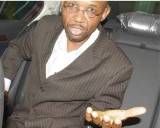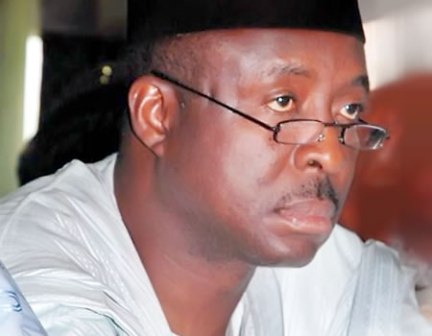BY: FEMI OWOEYE
Dear Otunba Niyi Adebayo,
Following your appointment as Minister of Industry, Trade and Investment, one of your first move was to order a review of the nation’s proposed Automotive Industry Development Plan, which suffered another setback after 2019 General election.
But in a reported media statement, you attempted to rekindle the hope of the Nigerian auto industry stakeholders with a promise to prioritise development of the industry in the current year 2020.
You even announced a planned stakeholders meeting scheduled for the tail end of January.
As heartening your moves seem, a number of stakeholders are pessimistic, as your proposed plans could be easily akin to history repeating itself.
Your predecessor, Dr. Okechukwu Enalema, made similar moves, hosting an auto industry stakeholders meeting in August 2016. At the meeting, stakeholders gave recommendations, which the minister promised to work with.
But contrary to his promise, the industry was left in indeterminate state throughout President Muhammadu Buhari’s first four years in office.
Although the National Automotive Industry Development Plan (NAIDP) bill was passed by the national assembly as far back as November 2017, President Buhari declined accenting the bill after the 2019 election.
That means, for four years, main achievements were talks and criticism of auto policy, especially by the management of the Nigerian Custom Service (NCS), which seems to out rightly misunderstand the NAIDP bill, as all they could see was a threat to revenue generation.
As a result of the unnecessary delay of NAIDP bill passage, the nation’s auto industry has suffered setback, as helpless stakeholders/investors await from you a political will to do the needful by injecting life into the now comatose auto industry. Unfortunately, time is running out.
Therefore, as the proposed stakeholders conference holds again this month, you are faced with a once in lifetime opportunity to make a history for yourself as a minister under whom Nigeria developed an automotive industry.
As a Yoruba elder from the Land of Honour, Ekiti State, where I also hail from, you are familiar with a proverb which literarily means: ‘’If it takes 20 years to prepare for madness, when would the real madness commence?’’
By October, President Muhammadu Buhari’s administration will have only three years to go. To make things happen in the auto industry, time is essence.
How to Make It Happen
Think again about the potential of the auto industry to grow hundreds of sub-industry and so create thousands of jobs and become one of the hugest foreign exchange earners for Nigeria.
Also be mindful of the following:
- NAIDP is out to bring to life the said potential, leading to massive job creation on a large scale through manufacturing of automobiles and auto parts.
- Major content of the NAIDP bill is provision of incentives to investors in auto manufacturing, by way of discouraging patronage of imported vehicles with import duty increase on Fully Built up (FBU) new and second hand vehicles.
- As you would have seen, the NAIDP encourages auto makers to approach full auto manufacturing in three stages, including: Semi Knocked Down (SKD) parts stage 1 and stage 2 and then Completely Knocked Down (CKD).
- During the three stages, licensed auto makers are to enjoy 10%, 5% and 0% duties on imported assembly kits respectively.
- During this period, auto assemblers are expected to achieve volume increase, for instance being able to roll out and sell as much as 50000 units of vehicles for sale per annum.
- To achieve volume increase, NAIDP spells out licensing auto finance institutions
Therefore, notwithstanding whatever is removed or added to the bill, NAIDP, in its pre-review form, is not only comprehensive, it provides answers to various begging questions about growing the nation’s automotive industry. Had it become operational since 2017, the nation’s auto industry would not have been in motion without movement as it is today. Good news, however, is: significant progress could still be made before 2023.
To make it happen, just convince the federal government to get on with it with speed. NAIDP bill must be passed through the National assembly without delay and transmitted to the president for immediate signature.
While still preparing the bill for re submission to the national assembly, there is a need to immediately commence establishment of auto finance banks. Do not shut doors against interested investors outside Nigerian shores as it was done before. Invite able and willing banks worldwide, including Wesbank of South Africa, which had earlier showed interest.
After all, it is crucial we achieve sales volume that would be high enough to encourage and attract badly needed auto parts manufacturers.
Once the nation is inundated with auto components makers, CKD auto assemblers would be able to delist significant numbers of their auto making kits, replacing them with what is made locally, thereby saving on production cost and ultimately able to make for Nigerians more affordable vehicles.
After the upcoming conference, we cannot afford delay before sending the NAIDP back to the national Assembly for re-passage. Remember, most of those who passed the bill in 2017 are not there anymore. The present assembly is likely to set up a new committee, which, if not pressured, could cause a damaging delay before making final recommendation to the house.
As the Minister in charge, you have got to pile your weight on the bill, lobbying all that matter in the upper and lower house, including leaders of the parliament. Otherwise we could be looking at another 12 months before the bill returns to the president for signature.
To make up for past delays, make move to attract auto finance companies around the world ready to take off as soon as the bill is signed by the president.
Aside implementation of NAIDP, one ugly development during President Buhari’s first term in office was refusal of government functionaries to buy locally assembly vehicles, contravening the nation’s procurement policy with impunity.
After all, according to the Dr. Aliyu Jelani, NADDC DG’s statement in 2018, office of the secretary to the government of the federation, had issued a circular to this effect and Bureau of Public Procurement (BPP) had commenced implementation in conjunction with NADDC. It must be noted that when government functionaries in any of the three arms of government deviate from Public procurement policy as did by the nation’s 8th National Assembly, which went for imported fully built up SUVs rather than buy locally assembled version in line with the public procurement policy, such unpatriotic acts are capable of sending a wrong signal to the public and ultimately affect the business of the indigenous auto makers negatively. This should not be tolerated in 2020 and beyond.
Moreover, be prepared for carriers of discouraging news, those who would argue that the world is shifting from internal combustion engine-powered vehicles to electric vehicles. They would advise you to suspend auto industry development until Nigeria achieves stable power supply to service charging stations, adding that internal combustion engine-powered vehicle manufacturing plant at this age is a waste of time. Truth is, from enemies of Nigeria’s auto industry development, there are always reasons why we should not take off.
My advice sir: Ignore them and simply get on with it. Once we take off and all necessary structures and policies are in place, it is actually easy to do technology conversion. At the moment, Nigeria’s auto industry has got over 500,000 annual sales market to play with.

In conclusion, while your immediate action sounds similar to that of your predecessor, if implemented with seriousness and political will, your tenure as Minister of Industries, Trade and Investment would leave an ineffaceable chapter in the history of Nigeria’s economic development.





